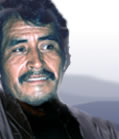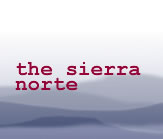 |
 |
||
 |
|||
|
RELATED THEMES agriculture development employment and income livelihood strategies OTHER LOCAL THEMES BACKGROUND |
economics
Community members talk of the gradual process of change from a subsistence to a cash economy, a process accelerated by Mexico's 1994 entry into the North America Free Trade agreement (NAFTA) and the progressive opening up of the national economy to international capital flows and markets. The household economy of previous generations was centred on cultivation of staple foods for their own consumption, and exchange and barter of produce as well as labour. One narrator in Tiltepec says, ".[our forefathers cultivated] corn, beans, sugarcane and chilli" (Mexico 3). It seems cotton was also grown, but to make clothes, not for sale. Since then, there have been changes in people's economic circumstances and needs, as an elder resident of Ixtlán notes: ". now, as there are more comforts, everything is easier, but there must be more sources of work too, so that one can survive - because everything is based on money. One can't live like we used to anymore because I remember that before there was exchange, the people who sold goods exchanged them for corn, beans and wheat and a village could survive like that, they helped each other in this way" (Mexico 16). A farmer in the remote village of Tiltepec (Mexico 13) talks of how he brought in necessities from outside and bartered them: "I brought chorizo (spicy sausage), sweet breads and all those things to eat, salt more than anything, and it was all exchanged for coffee." He talks of the benefits of coffee cultivation as a cash crop, among others: "Coffee is the reason the people have merchandise to sell here and people come here to sell, you can buy everything here" (Mexico 13b). Since the interviews were gathered, coffee prices have dropped. Yet even when prices were higher, it seems families in Tiltepec still needed to grow much of their own food to live; a narrator (Mexico 3) refers to growing the same staples as in the past because "there aren't resources to buy everything, that's why we grow all this." One man, the successful co-owner and manager of a carpentry business in Ixtepeji, says he no longer has to grow food for his family: ".when I began, I used to work in the fields because, I tell you, at the beginning [of a business] the income is always lower. With time we've specialised more in the work.I no longer work in the fields" (Mexico 22). Oaxaca City remains the main outlet for sale of goods beyond the immediate area, with a few exceptions: "At El Istmo (the east of Oaxaca state) there is the opportunity to sell something.fortunately I have clients there" (Mexico 29). Another narrator notes that the mushrooms that he sells in Oaxaca City are sold on to Japan (Mexico 20). Medicinal and culinary use is made of local plants: "We use the natural resources we have in our community; allopathic medicine is expensive now. Well, what we have in the community is cheap and easy to find" (Mexico 4). However, one woman says that people don't eat the edible wild plants and fungi as much as they did in the past, preferring to consume more meat and the tinned goods they can now afford. Although most of the older people describe a significant rise in the standard of living, the need to migrate for work remains. One narrator (Mexico 7) comments on the effect of NAFTA and the free trade economy, which he perceives as lowering wages and making life more difficult: "Living in Mexico City isn't good anymore because the wages are very low now because of the problem of the free trade deal. The wages went down and the working class isn't recognised any more.". The community economy relies significantly on unpaid community service, despite the sacrifices this may demand of community members (Mexico 15): ".putting the cargo (unpaid community position) in front of any problem, economic or family, has been very difficult. . None of the cargos are paid... what I've noticed . is that one completely leaves one's own work, in one way or another. One concentrates one's efforts on the cargo, well, everything else stops, everything is postponed, interrupted." Clearly, the more people need to earn a wage to survive, the greater the economic sacrifice involved in undertaking a cargo. And in some communities, high rates of migration mean cargo duties for those who remain come round more frequently. quotes about economics"One didn't have to have a lot of money because one could exchange things, even labour. The people who didn't have land.they asked for corn, beans and wheat and . they went to pay for it with work later, in the harvesting, the shelling of the corn.So that's how they did it, or those that had some money lent it out with the interest. [those who borrowed] would be able to go and work and so pay it back." "Well as [my friend] Gil and I get on well we talk about the future so we'll be able to live a little better. We look for a way, what work we can do - like now that the coffee is going down and it doesn't have a good price - to see in what work we can earn a little more." ".there was no other option than to continue working. There were some very difficult problems, family problems in which my brothers had to go away to earn themselves a living. But they didn't have enough to send money to my parents. so I felt responsible to stay with them and work to help them, so that's how come I didn't have the opportunity to continue studying. my parents didn't have anything in those days, that's why I had to work and leave the primary school." ".everything is done with money now.the village has grown, there have been a lot of changes. The economy is better but it's also more difficult now because you have to buy everything. You have to buy gas and the people that use charcoal have to buy that too." "After I left school, I was with my father.installing ovens, making charcoal, only that. We would go to Oaxaca. At that time we still carried the charcoal [by donkey].We left at 11 at night, arrived at 7 in the morning.like muleteers, walking. But at that time there were few supplies, there were no cars, and the small supplies ran out, and there wasn't anything to sell or make a living from other than the charcoal. At least we made enough to eat. we used to grow maize and beans. Only the charcoal was [sold].to buy soap, sugar." "You didn't see shoes before, or sandals, nothing, just bare feet. When I went to school trainers, sandals and shoes had just arrived, but there weren't any before. We all had bare feet; that's how we went to get firewood, that's how we went about. It was just a while ago that this was seen. Life has changed a lot because [before] there were only poor people, rags, but you don't see this now, it's changing with the time." |
|